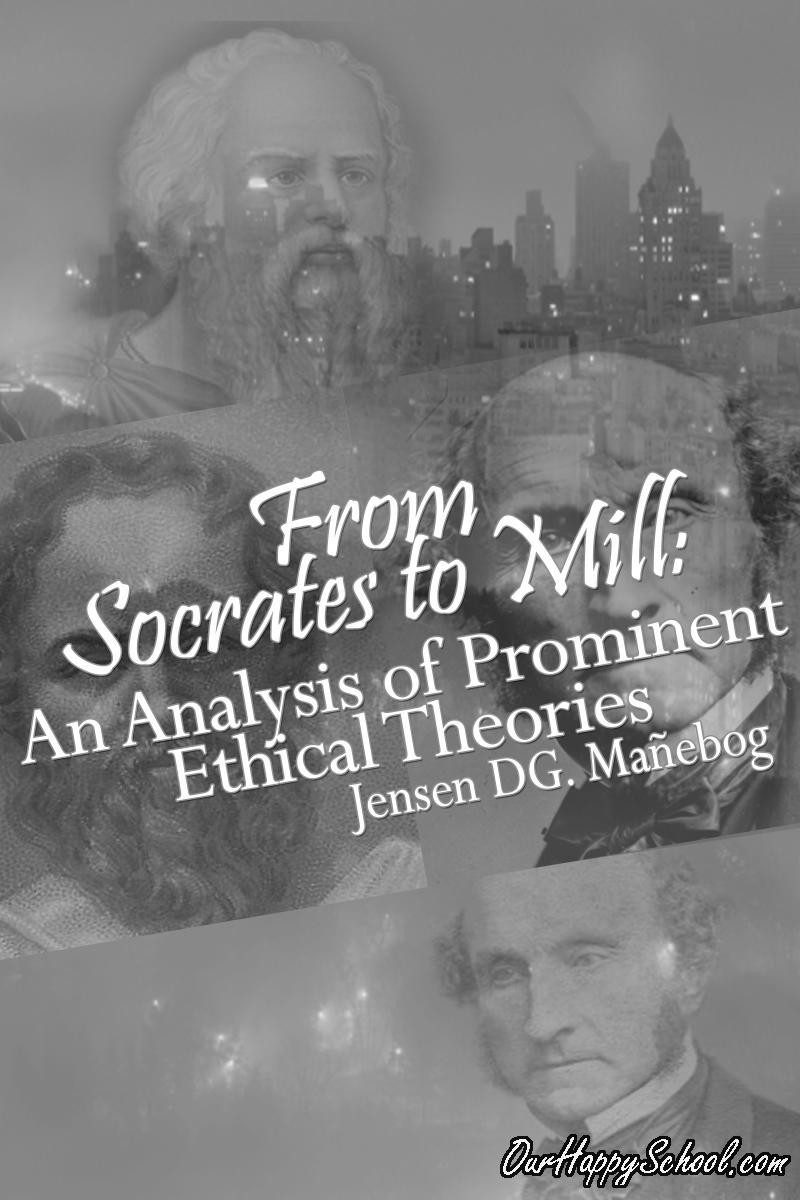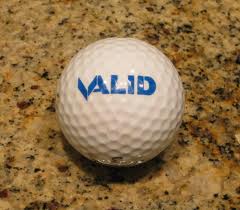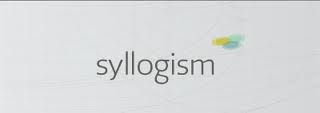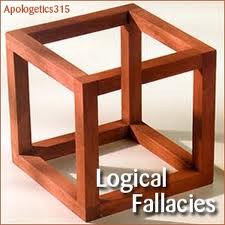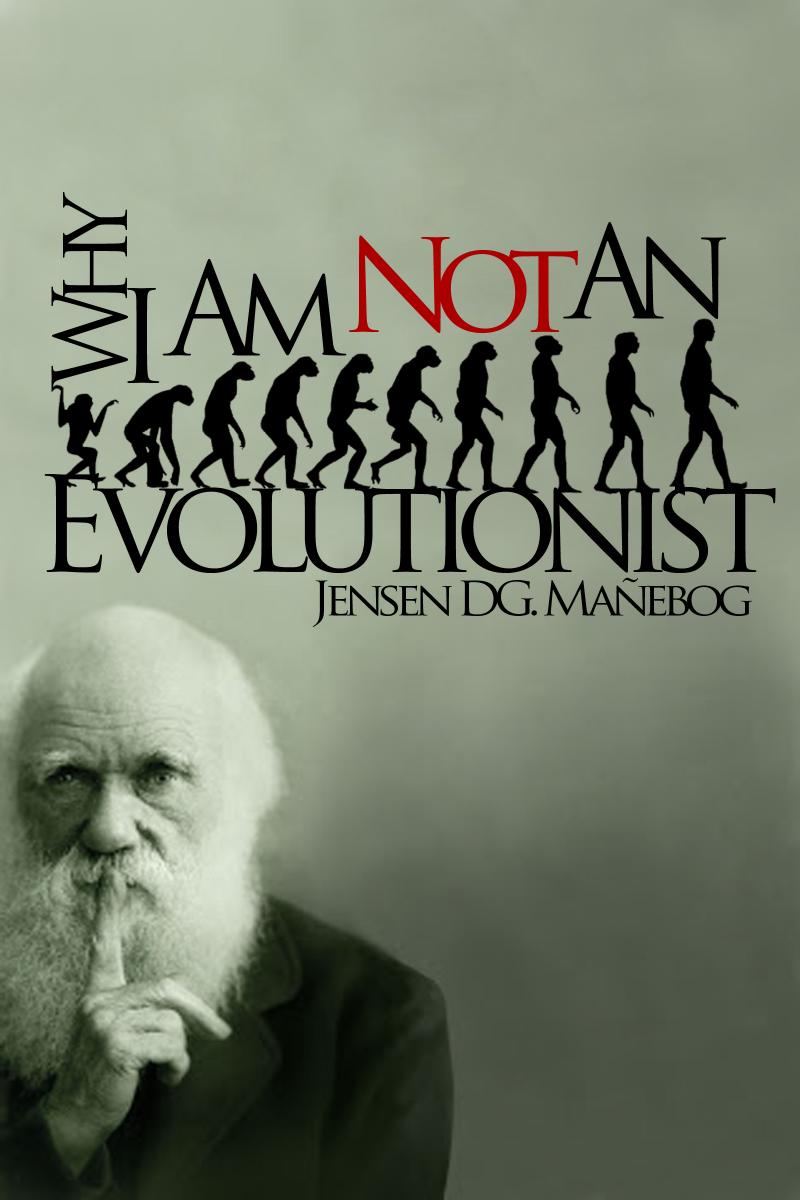
*Students & teachers could access this online syllabus by just entering "Logic: A Syllabus" in the search engine (upper right corner) of www.OurHappySchool.com
Note to users (teachers & students): To become members of “OurHappySchool community” and enjoy its services, just click our FB LIKE button above (if you haven't done yet) and leave a simple message in the comment section below.
WEEK 1
I. SPECIFIC OBJECTIVES:
To state the importance of Logic in communication and in man’s being social
II. TOPICS/SUBJECT MATTER:
The importance of Logic and critical thinking; The importance og Logic in Communication’; ‘Language is Logic’; Logic in good usage; The 2 kinds of reasoning; Validity & Probability.
III. READINGS:
Internet articles:
site:
www.OurHappySchool.com (*
the articles can also be found by typing their title in the site’s own search engine)

IV. SUGGESTED ACTIVITIES:
A. Review of the last topic; Discussion of the prescribed reading
B. Assignment for next topic: Read the prescribed lecture/s for the next lesson; In the comment section below the online lecture/s, state why the topic is important (2-3 sentences; to be checked by the Asst. Monitor/Prof.); Bring a copy of the lecture/s in class.
V. EVALUATION: (Professor’s discretion)
WEEK 2
I. SPECIFIC OBJECTIVES:
To define Philosophy; to define Logic; to state the importance of studying Philosophy and Logic; to understand the different types of knowledge claims; to internalize the principle of healthy skepticism which is to become everyone’s epistemic responsibility; to distinguish the secular from divine knowledge; and to give prime importance to the true knowledge being taught by the Holy Scriptures.
II. TOPICS/SUBJECT MATTER:
PHILOSOPHY & LOGIC: A BACKGROUND: Definition, Division, Method, Object and Goal of, and Misconceptions about Philosophy; Definition, Kinds, Division, & Method of Logic; The Secular & Divine Knowledge

III. READING/S:
&
IV. SUGGESTED ACTIVITIES:
A. Review of the last topic; Discussion of the prescribed reading
B. Assignment for next topic: Read in the site the Reading for the next Lesson. Accomplish the instructions under 'Activities'. Bring to class a printed copy of the lecture and the 2 readings for 'suggested activity' for Week 3 (see below).
V. EVALUATION: (Professor’s discretion)
WEEK 3
I. SPECIFIC OBJECTIVES:
To define, differentiate, and relate concept, idea, word, and term; to enumerate the various kinds of terms; to distinguish connotation and denotation; to identify the suppositions of terms in propositions
II. TOPICS/SUBJECT MATTER:
CONCEPT, IDEA, WORD, AND TERM; Intension (Comprehension) and Extension of terms; Kinds of terms (A. According to quantity/extension, B. According to quality, C. According to Origin, D. According to the nature of referents, E. According to definiteness of meaning, F. According to relation); Supposition of terms
III. READING/S:
IV. ACTIVITIES: (Professor’s discretion)
B. Assignment for next topic: Read in the site the Reading for the next Lesson. Accomplish the instructions under 'Activities'. Bring to class a printed copy of the lecture.
V. EVALUATION: (Professor’s discretion)
WEEK 4
I. SPECIFIC OBJECTIVES:
To state what a definition is and its importance; to enumerate the several types of definitions; to identify the rules of good definition
II. TOPICS/SUBJECT MATTER:
DEFINITION: What Definition is; The various types of definition; The rules of good connotative (real) definition
III. READING/S:
IV. SUGGESTED ACTIVITIES:
A. Review of the last topic; Discussion of the prescribed reading
B. Assignment for next topic: Read in the site the reading for the next Lesson; In the comment section below the lecture, state why the lecture is important (2-3 sentences; to be checked by the Asst. Monitor/Prof.); Bring a printed copy of the lecture in class.
V. EVALUATION: (Professor’s discretion)
WEEK 5

I. SPECIFIC OBJECTIVES:
To identify the two general types of Division; To Distinguish Division from Classification; To state the importance of Classification; To identify the Golden Rules of Classification
II. TOPICS/SUBJECT MATTER:
DIVISION & CLASSIFICATION: Types of Division; Rules of Division; Types of Classification; Importance of Classification; Rules of Classification
III. READING/S:
IV. SUGGESTED ACTIVITIES:
A. Review of the last topic; Discussion of the prescribed reading
B. Assignment for next topic: Read in the site the Reading for the next Lesson. Accomplish the instructions under 'Activities'. Bring to class a printed copy of the lecture.
V. EVALUATION: (Professor’s discretion)
WEEK 6
I. SPECIFIC OBJECTIVES:
To determine how judgment is made; To distinguish judgment from proposition; To distinguish a proposition from a sentence; To introduce the three basic types of propositions
II. TOPICS/SUBJECT MATTER:
JUDGMENT, PROPOSITION (STATEMENT), and SENTENCE: Truth and Falsity; Judgment and Proposition; Proposition (Statement) and Sentences
III. READING/S:
IV. SUGGESTED ACTIVITIES:
A. Review of the last topic; Discussion of the prescribed reading
B. Assignment for next topic: Read in the site the Reading for the next Lesson. Accomplish the instructions under 'Activities'. Bring to class a printed copy of the lecture.
V. EVALUATION:
WEEK 7
I. SPECIFIC OBJECTIVES:
To introduce the logical structure of a categorical proposition; To identify the quality and quantity of categorical propositions; To identify the kinds of categorical propositions according to quantity; To enumerate the kinds of categorical propositions according to quality; To name the steps and guidelines in transforming ordinary discourse statements into standard form
II. TOPICS/SUBJECT MATTER:
CATEGORICAL PROPOSITION: Quantity of Categorical Statements; Quality of Categorical Statements; The Standard Form of Categorical Propositions; Reduction to the Logical Structure; Steps in transforming ordinary discourse statements into standard form; Some guidelines in reducing ordinary statements to the standard categorical form
III. READING/S:
IV. SUGGESTED ACTIVITIES:
A. Review of the last topic; Discussion of the prescribed reading
B. Assignment for next topic: Read the Reading for the next Lesson. Bring to class a copy of the lecture.
V. EVALUATION: (Professor’s discretion)
WEEK 8
I. SPECIFIC OBJECTIVES:
To distinguish hypothetical proposition from modal proposition; To identify the three kinds of hypothetical proposition; To state the three kinds of hypothetical proposition
II. TOPICS/SUBJECT MATTER:
MODAL & HYPOTHETICAL PROPOSITIONS: Necessary, Contingent, Possible, and Impossible propositions; Conditional, Disjunctive, and Conjunctive propositions
III. READING/S:
Textbook: Santiago, pp. 88-89; 96-99
IV. SUGGESTED ACTIVITIES:
A. Review of the last topic; Discussion of the prescribed reading
B. Assignment for next topic: Read in the site the 2 Readings for the next Lesson (from book & site). In the comment section of the online reading, answer any of the Guide Questions (2-3 sentences). Bring to class a printed copy of the 2 lectures.
V. EVALUATION: (Professor’s discretion)
WEEK 9: MIDTERM EXAMINATION
WEEK 10-11
I. SPECIFIC OBJECTIVES:
To differentiate and exemplify Truth, Validity, & Soundness; To define reasoning; To introduce the two general types of Inference; To identify the kinds of immediate inference and the laws of logical opposition
II. TOPICS/SUBJECT MATTER:
A) TRUTH, VALIDITY, & SOUNDNESS; B) NATURE OF REASONING, TYPES OF INFERENCE, OPPOSITIONAL INFERENCE: The two types of Inference; Types of Immediate Inference; The Square of Opposition; Laws of Contrariety; Laws of Contradiction; Laws of Subalternation; Laws of Subcontrariety
III. READING/S:
IV. SUGGESTED ACTIVITIES:
A. Review of the last topic; Discussion of the prescribed reading
B. Assignment for next topic: Read the 2 Readings for the next Lesson. In a yellow paper, do the "Sample Quiz" in the online reading ("Notes on Categorical Syllogism"). Bring to class a printed copy of the 2 readings.
V. EVALUATION: (Professor’s discretion)
WEEK 12
I. SPECIFIC OBJECTIVES:
To define Categorical Syllogism; To explain the structure of the categorical syllogism; To determine the figures and moods; To determine whether a syllogism is valid or invalid in the light of the syllogistic rules
II. TOPICS/SUBJECT MATTER:
THE CATEGORICAL SYLLOGISM: The Structure of a Categorical Syllogism; Distribution of Terms; Syllogistic Rules; Figures and Moods of the Categorical Syllogism
III. READING/S:
IV. SUGGESTED ACTIVITIES:
A. Review of the last topic; Discussion of the prescribed reading
B. Assignment for next topic: Read the Reading for the next Lesson. Bring to class a copy of the lecture.
V. EVALUATION:
WEEK 13
I. SPECIFIC OBJECTIVES:
To define hypothetical syllogism; To name the three kinds of hypothetical syllogism; To give the rules of conditional, disjunctive, and conjunction; To determine whether a hypothetical syllogism is valid or invalid
II. TOPICS/SUBJECT MATTER:
THE HYPOTHETICAL SYLLOGISM: The Conditional Syllogism; The Disjunctive Syllogism; The Conjunctive Syllogism
III. READING/S:
Textbook: Santiago, pp. 203-216
IV. SUGGESTED ACTIVITIES:
A. Review of the last topic; Discussion of the prescribed reading
B. Assignment for next topic: Read the Reading for the next Lesson. Bring to class a copy of the lecture.
V. EVALUATION: (Professor’s discretion)
WEEK 14
I. SPECIFIC OBJECTIVES:
To define each kind of fallacy and give example; To distinguish formal from informal fallacies; To identify the formal fallacies committed in some arguments
II. TOPICS/SUBJECT MATTER:
THE FORMAL FALLACIES: Fallacies of Definition; Fallacies of Division; Fallacies of Eduction; Fallacies of Categorical Syllogism; Fallacies in Hypothetical Syllogism
III. READING/S:
Textbook: Timbreza, pp. 145-156
IV. SUGGESTED ACTIVITIES:
A. Review of the last topic; Discussion of the prescribed reading
B. Assignment for next topic: Read in the site the 4 Readings for the next Lesson. In a yellow paper, write an example for each kind of fallacy. Bring to class a printed copy of the lectures.
V. EVALUATION: (Professor’s discretion)
WEEK 15
I. SPECIFIC OBJECTIVES:
To state the general types of informal fallacies; To identify the fallacies committed in some arguments
II. TOPICS/SUBJECT MATTER:
THE INFORMAL FALLACIES: Fallacies of Relevance; Fallacies of Presumption; Fallacies of Ambiguity/Language; Miscellaneous Fallacies
III. READING/S:
Internet articles:
site:
www.OurHappySchool.com (*
the articles can be found by typing their title in the site’s own search engine)
IV. SUGGESTED ACTIVITIES:
A. Review of the last topic; Discussion of the prescribed reading
B. Assignment for next topic: Read the Reading for the next Lesson. Bring to class a copy of the lecture.
V. EVALUATION:
WEEK 16
I. SPECIFIC OBJECTIVES:
To introduce Symbolic Logic; To distinguish simple from compound statements; To give guidelines on how to symbolize statements; To state the different kinds of compound statements and the special symbols used for each kind of statement; To state the steps in constructing truth-table
II. TOPICS/SUBJECT MATTER:
SYMBOLIC LOGIC/PROPOSITIONAL LOGIC: Simple and Compound Propositions; The connectives/symbols for compound statements; Construction of truth table; Checking the validity of argument by using truth table
III. READING/S:
Textbook: Santiago, pp. 241-276
IV. SUGGESTED ACTIVITIES:
A. Review of the last topic; Discussion of the prescribed reading
B. Assignment for next topic: Read the Reading for the next Lesson. Bring to class a copy of the lecture.
V. EVALUATION: (Professor’s discretion)
WEEK 17
I. SPECIFIC OBJECTIVES:
To identify and exemplify the 10 rules of inference; To enumerate the steps in constructing the Formal Proof of Validity
II. TOPICS/SUBJECT MATTER:
RULES of INFERENCE: The 10 rules of inference; Formal Proof of Validity; Construction of the Formal Proof of Validity
III. READING/S:
Textbook: Santiago, pp. 277-297
IV. SUGGESTED ACTIVITIES:
A. Review of the last topic; Discussion of the prescribed reading
V. EVALUATION:
WEEK 18: FINAL EXAMINATION
Prepared and contributed by Jensen dG. Mañebog, a Professorial Lecturer in the Graduate School of a university in Metro Manila, Philippines.
REFERENCES:
Alma Salvador Santiago. Logic: The Art of Reasoning. Redman Printing Press, 4th ed. 2006.
Florentino T. Timbreza. Logic Made Simple for Filipinos. Phoenix Press Inc., Quezon City, Philippines. 1999.


